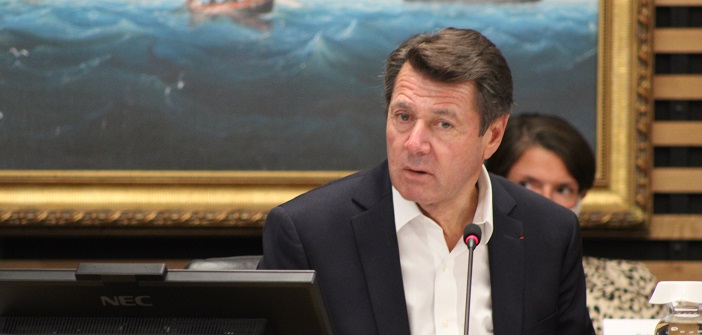The final turn before Sunday’s sprint, which will be a tight race: while Renaud Muselier has secured left-wing support with the withdrawal of the Felizia list and the “endorsement” of Jean-Marc Governatori, Thierry Mariani received the voting indication from Jean-Noël Chiusano (DLF), who garnered nearly 3 points from voters last Sunday.
Given the indications from the polls, which estimate that abstention will decrease by only 3 points, the result remains balanced and prevents any prediction.
Following the voting indication from the leaders of Les Républicains, Jacob-Larcher-Baroin, Renaud Muselier received another one, oh so precious, from former President of the Republic Nicolas Sarkozy, who remains a reference for right-wing voters.
The silence of local bigwigs Eric Ciotti and David Lisnard, who are firmly in their “neither-nor” stance, objectively favors Thierry Mariani, who nonetheless received 4.5% more votes than the candidate from “their” party. As both always call for “clarity” in their party’s positioning, one could say that clearer than this is difficult!
As for the third strongman of the departmental right, Jean Léonetti, he basks in the role of Pontius Pilate. Unfortunately for him, washing his hands is not as neutral a gesture as one might think.
On the other hand, someone far from remaining on the sidelines is Christian Estrosi, more engaged than ever in supporting Renaud Muselier and… himself (regional funding for the department of Alpes-Maritimes amounts to 300 million per year, since Christian Estrosi and subsequently Renaud Muselier replaced the socialist Vauzelle from 2015). “These elections can have terrifying economic and social consequences if a major republican party does not win,” he stated during the last meeting he led yesterday late in the afternoon in front of a large audience and in the presence of regional and departmental candidates (only those from the Nice districts).
If the first round of these elections was marked by very high abstention reaching almost 70%, sparking a “democratic” alert (and yes, if people do not vote, how can we speak of representative democracy?) and never-ending debates, Christian Estrosi presents his analysis, “we need a reform that facilitates voting,” and takes the opportunity to make proposals to strengthen the Region’s role in the eyes of voters: “But also a decentralization reform that gives power to local authorities whose utility our fellow citizens do not understand. Let’s make the regional president the head of Pôle Emploi in his region instead of centralizing in Paris. And also the head of the Regional Health Agency (ARS), someone who knows the field well as demonstrated during the pandemic and vaccination campaign, instead of an obscure government official.”
Regarding the next Sunday’s election, Christian Estrosi calls for a republican pact: “Our good management has allowed our territories to have a strong and united region and department by their side when they needed it most, when facing the different crises we have gone through together. This work in the service of the territories, we must ensure it can continue.”
His conclusion was in “crescendo”: “Just see the non-economic program of the RN, while this is the major and primary competence of regional councils,” and his call without hesitation: “Also, to prevent the management of our region from falling into the hands of the National Rally, it is important to be fully mobilized for this second round.”


